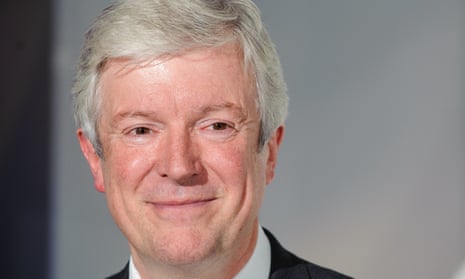The BBC has increased its savings target by £100m to £800m a year over the next five years, blaming rapid inflation in the cost of drama and sport.
Director general Tony Hall outlined the need for further savings in a speech on Tuesday, saying the measures were needed to survive in an increasingly competitive marketplace, as well as to deal with the financial settlement agreed with the government last July.
The total savings needed in the first five years of the next licence fee period represent 23% of the current annual licence fee revenue of £3.7bn, according to the BBC.
In his speech, Hall said that the BBC would shortly announce a new structure to “remove duplication of management and content spending” as well as the results of a review into the BBC News division, which had identified a further £80m in savings.
Yet the inflation-busting cost of popular and critically appraised drama such as War & Peace, as well as sports content, has increased the need to save even more by 2022.
While there are still doubts over the BBC News channel, BBC sources said on Tuesday that Radio 5 Live would not be axed completely, although it is looking at ways to save money, possibly using its services for local radio.
Hall urged the government not to renege on what he considers an agreement to increase the licence fee in line with inflation, the first such commitment for nearly a decade.
“The agreement we came to with the government last July is the agreement. It gives us financial stability ... So I shouldn’t now need to point out that we cannot live with any further cuts.”
Last September, the BBC admitted it is “inevitable” that services will have to be closed or cut and estimated that it would need to save £700m a year. It blamed the need to compete with the likes of US giants such as Netflix as well as the demands of the financial settlement.
At the time, rolling news, BBC4 and children’s television channels such as CBBC were all identified as possible candidates for the axe.
Hall also identified 1,000 middle management jobs to save a further £150m. On Tuesday he said: “Even if the BBC abolished all its managers tomorrow we would have found just 6% of the savings we need.”
As well as a commitment to the funding settlement, Hall’s speech to industry executives at an Enders Analysis conference also called for new safeguards for BBC independence and for continued creative freedom.
After culture secretary John Whittingdale appeared to reopen the row over whether the BBC should be producing popular as well as distinctive programmes last week, Hall made a plea to keep money in the “hands of creative commissioners, not regulators or bureaucrats”.
“A better than ever BBC is one that has as few barriers as possible to creativity; allowing people, teams and ideas to come together to do their best work. It is not one which allows bureaucracy, layers and box-ticking to get in the way.”

Comments (…)
Sign in or create your Guardian account to join the discussion